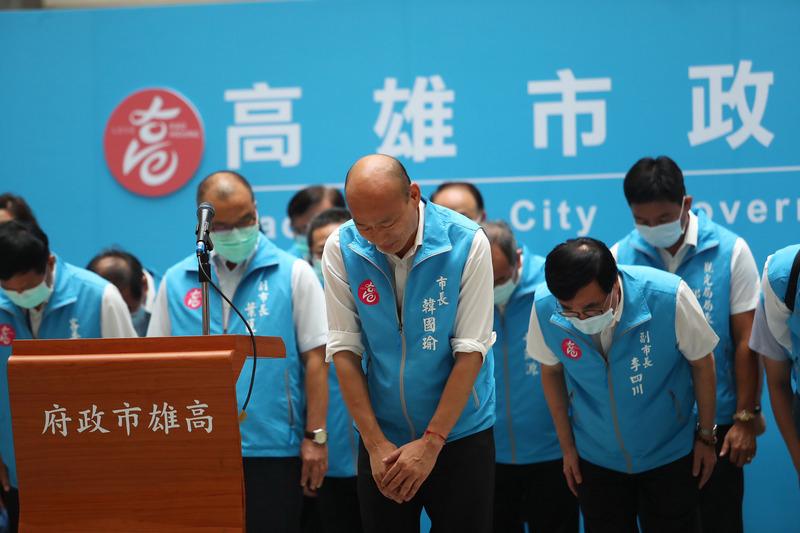Hong Kong democracy activists said they were greatly inspired by the historical recall election in Taiwan on June 6, after a Beijing-friendly mayor was voted out for being “unfit” for office.
“Han Kuo-yu, who’s aligned himself with authoritarian China’s interest, has been booted as mayor of #Kaohsiung by democratic vote,” tweeted Joshua Wong, the secretary-general of Hong Kong’s pro-democracy party Demosistō on Saturday evening, after the election results.





